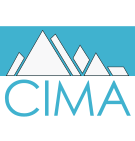
Conference of |
CIMA Code of Conduct
CIMA Purpose
The Conference of Inter-Mountain Archivists is a professional organization established to promote cooperation and facilitate the exchange of information among individuals, groups, and institutions in the intermountain states and adjoining areas who are interested in the preservation and use of archival and manuscript materials; to disseminate information on research materials, archival methodology, and conservation techniques; to provide a forum for the discussion of matters of common concern; and to further the education and training of archivists, curators, records managers and custodians of private papers.
See CIMA bylaws
Core Values
CIMA values and promotes cooperation, the exchange of information and ideas, professional development of its members, and inclusive practices within the association and the archival profession. Our goal is to provide leadership and opportunities for involvement and engagement across our diverse membership’s identity groups, geographic regions, and professional levels. CIMA promotes the principle of equity and respects the diversity of archivists and librarians across the vast array of intersections of identity, which includes but is not limited to age cohort, institutional type, employment role, location, nationality, socioeconomic status, faith, religion, ethnicity, ability/disability, gender identity, gender expression, and/or sexual orientation.
Following the core principles stated in the Society of American Archivists' Code of Ethics for Archivists and Equal Opportunity/Non-Discrimination Policy, CIMA is committed to providing a safe, inclusive, harassment-free and discrimination-free environment for CIMA members and guests to participate in respectful professional discourse. We ask that you practice the following to help us create and maintain an ethos of trust and accountability*:
● Be kind. Be respectful of everyone’s opinions, suggestions, and time.
● Be cooperative. Every voice matters. Balance your participation between speaking and active listening. Make sure everyone’s voice is heard.
● Be inquisitive. Ask questions. Seek clarification. Challenge assumptions and tradition.
● Be engaged. Participate in discussions. Offer constructive criticism and accept it thoughtfully.
● Be caring. Speak up for yourself and others by addressing potential conflict or problems.
● Be welcoming. Use language that invites and respects others. See CIMA’s Communication Guidelines for more.
● Be aware. Work toward more universally accessible presentations, resources, and physical and online spaces. See CIMA’s Communication Guidelines for more.
Anti-Harassment Policy
CIMA does not tolerate harassment in any form, including but not limited to:
CIMA does not discriminate on the basis of age, income or social class, color, creed, (dis)ability, ethnicity, family relationship, gender identity, gender expression, individual lifestyle, level of experience in the archival field, educational background, marital status, military or veteran status, national origin, physical appearance, professional status, race, religion, sex, or sexual orientation.● abusive or derogatory verbal comments and/or discriminatory images in public physical or online spaces;
● harassing photography or recording;
● purposeful and/or repeated acts of misgendering (including direct refusal to respect a person’s pronouns);
● inappropriate or unwanted physical contact, including invasion of personal physical space, threats or acts of physical violence, deliberate physical intimidation or gestures, stalking, and unwelcome sexual attention;
● sustained verbal or physical disruption of talks at conferences, events, and meetings; and/or
● unwelcome jokes, visual depictions, teasing and/or whistling.
All CIMA members, meeting attendees, speakers, exhibitors, sponsors, vendors, and other participants are subject to and agree to abide by this Code of Conduct in all CIMA physical or online spaces, and at CIMA-sponsored events.
Reporting
Please report violation of this Code of Conduct and/or harassment directly to a CIMA Council member or submit a confidential report by completing the online form linked below, CIMA Harassment Complaint Form. You may be asked to provide contact information for further questions.
CIMA Harassment Complaint Form
If you are experiencing or witness an emergency in violation of the Code of Conduct during an in-person event, contact the facility front desk or dial 911.
For violations in CIMA online spaces, contact the administrator or submit an anonymous report with the online form. Online spaces include CIMA's website, CIMA-hosted forums/discussion lists and social media, and CIMA-hosted webinars/virtual meetings or presentations.
What CIMA will Do
CIMA’s President and DEIA Committee Chair will receive reports submitted through the online form and direct them to Council for review.
All reports of Code of Conduct violations or harassment will be investigated in confidence on a case-by-case basis by CIMA’s Council.
Council has the authority to suspend or terminate membership, ban participation in physical and virtual meetings, and deny access to online spaces. The DEIA Committee Chair will manage data about reports to flag repeated violations for Council to address.
Additional Resources
SAAsuggests the following online resources for victims seeking additional support including mediation or legal action, and for bystanders who observe harassment.
American Friends Service Committee
Bystander Intervention
https://www.afsc.org/bystanderintervention
Anti-Violence Project
212-714-1141
BetterBrave
Crime Victims Treatment Center
212-523-4728
Equal Rights Advocates
www.equalrights.org/legal-help/know-your-rights
415-621-0672
Hogg Foundation
Language Matters in Mental Health
https://hogg.utexas.edu/news-resources/publications/language-matters-in-mental-health
Hollaback! Bystander Intervention Resources
https://www.ihollaback.org/resources/bystander-resources/
Human Resources for the Arts
800-606-3651
National Sexual Assault Hotline
800-656-HOPE (4673)
National Street Harassment Hotline
855-897-5910
Project Callisto
Public Theater’s Sexual Misconduct Resources
www.publictheater.org/Sexual-Misconduct-Resources/
Safe Horizon
www.safehorizon.org
212-227-3000
help@safehorizon.org
Southern Poverty Law Center
Bystander Intervention Guide
https://www.splcenter.org/20171005/splc-campus-guide-bystander-intervention
● This policy is based on similar codes of conduct for:
○ The Association of Moving Image Archivists (http://amiaconference.net/amia-code-of-conduct/)
○ The Society of American Archivists (https://www2.archivists.org/statements/saa-code-of-conduct)
○ The Society of California Archivists (https://calarchivists.org/CodeofConduct)
*These Be statements are largely modeled after the Society of California Archivists’ (SCA) Ways of Being in their Code of Conduct (https://calarchivists.org/CodeofConduct)
Created: 2023 January
Page Last Updated: 2023 September